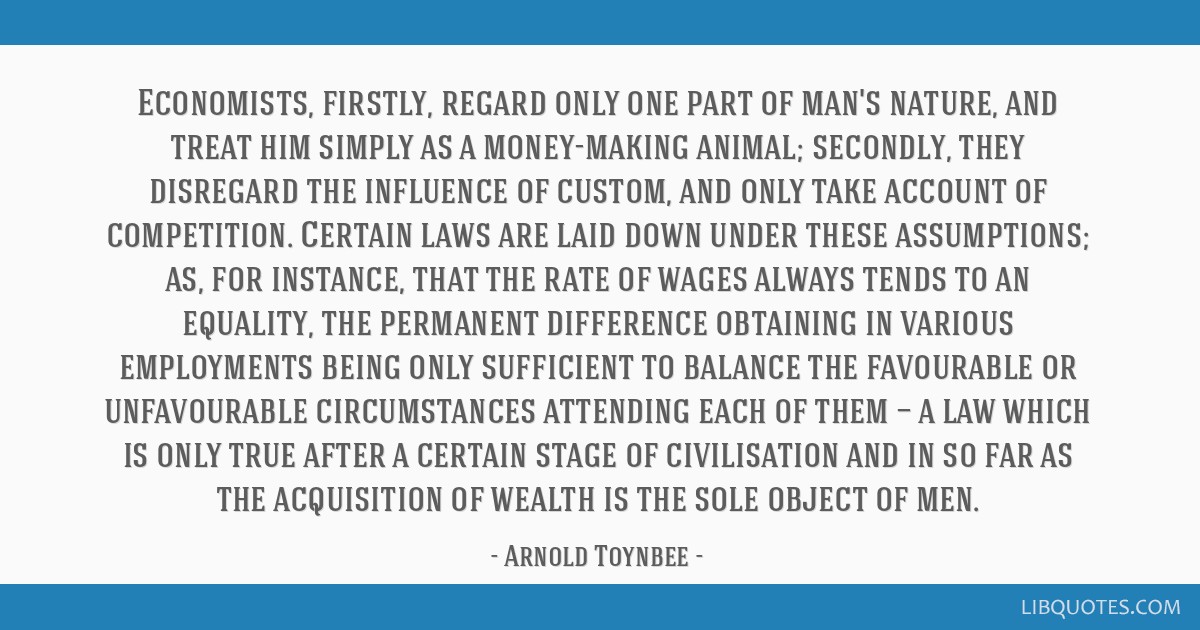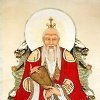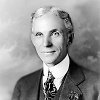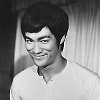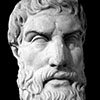Economists, firstly, regard only one part of man's nature, and treat him simply as a money-making animal; secondly, they disregard the influence of custom, and only take account of competition. Certain laws are laid down under these assumptions; as, for instance, that the rate of wages always tends to an equality, the permanent difference obtaining in various employments being only sufficient to balance the favourable or unfavourable circumstances attending each of them — a law which is only true after a certain stage of civilisation and in so far as the acquisition of wealth is the sole object of men.
p. 28-29 - Lectures on The Industrial Revolution in England (1884)
